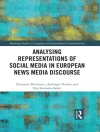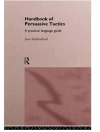Desire in Language presents a selection of Julia Kristeva’s essays that trace the path of an investigation, extending over a period of ten years, into the semiotics of literature and the arts. Probing beyond the claims of Sigmund Freud, Jacques Lacan, and others, Kristeva proposes and tests theories centered on the nature and development of the novel, and on what she has defined as a signifying practice in poetic language and pictural works. Desire in Language fully shows what
Roman Jakobson has called Kristeva’s “genuine gift of questioning generally adopted ‘axioms, ’ and her contrary gift of releasing various ‘damned questions’ from their traditional question marks.”
Table of Content
Preface
Acknowledgments
Introduction by Leon S. Roudiez
1. The Ethics of Linguistics
2. The Bounded Text
3. Word, Dialogue, and Novel
4. How Does One Speak to Literature?
5. From One Identity to an Other
6. The Father, Love, and Banishment
7. The Novel as Polylogue
8. Giotto’s Joy
9. Motherhood According to Giovanni Bellini
10. Place Names
Notes
Index
About the author
Julia Kristeva is professor emerita of linguistics at the Université de Paris VII. A renowned psychoanalyst, philosopher, and linguist, she has written dozens of books spanning semiotics, political theory, literary criticism, gender and sex, and cultural critique, as well as several novels and autobiographical works, published in English translation by Columbia University Press. Kristeva was the inaugural recipient of the Holberg International Memorial Prize in 2004 “for innovative explorations of questions on the intersection of language, culture, and literature.”












